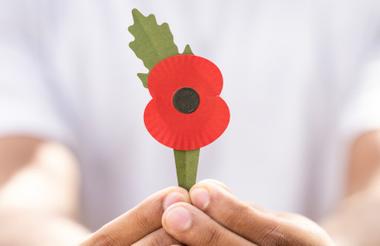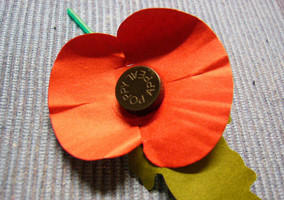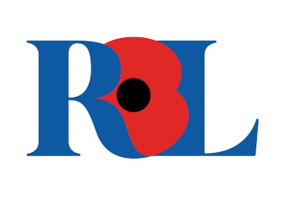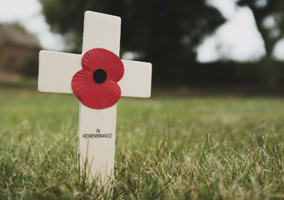The Royal British Legion (RBL) has announced it is switching to selling plastic-free poppies this year, which will cost around a third more to produce than the plastic version.
In its first redesign of the product in 28 years, the new poppy will be made from 100% paper and can be recycled through household recycling collections.
Available from October, it has been created from renewable fibres, and around 50% has been recovered from the waste from the production of coffee cups, according to the charity.
A spokesperson from the charity told Civil Society that the new poppy costs 3.8p to make, around 1p more than the plastic version - which had a plastic stem and centre.
The charity produces around 30 million poppies per year. Therefore, this could be an increase of around £300,000 in production costs.
“This cost will reduce over time owing to the return on investment in new machinery that is more energy efficient, and we are also hopeful energy costs and inflation will reduce,” the RBL spokesperson said.
If RBL produces 30 million plastic-free poppies this year for 3.8p it would cost them £11.4m. According to its latest accounts ending September 2021, RBL had a total income of £137.3m.
‘We hope this will encourage more people to take part’
The plastic-free poppy has been in development for three years in an effort to reduce the charity's use of single-use plastic. It was designed in collaboration with James Cropper, Matter and Sewtec Automation.
RBL worked with scientists at University College London to assess the plastic-free poppy’s environmental impact and found it would reduce carbon emissions by 40% compared to the previous product.
Remaining stocks of plastic poppies will also be available for sale in October to reduce waste of those already produced, the charity said.
Andy Taylor-Whyte, poppy appeal director at the Royal British Legion said: “We’re so proud to unveil our plastic-free poppy, which is completely recyclable, and hope that this will encourage more people than ever to take part in this year’s Poppy Appeal and show support to our Armed Forces community.
“After years of work and collaboration with our partners designing a new poppy, creating new paper and machinery and road-testing it for durability and colour-fastness, we have been able to eliminate single-use plastic and create a poppy that is an enduring symbol of respect and remembrance as well as being more planet-friendly.”
Professor Paola Lettieri, from University College London’s department of chemical engineering, helped assess the new poppy’s environmental impact. She said: “By replacing the single-use plastic with a paper-based design, and increasing the amount of recycled paper used, UCL found that the new poppy design has a 40% smaller carbon footprint and a similar reduction in its overall impact on the environment.”
Related articles












